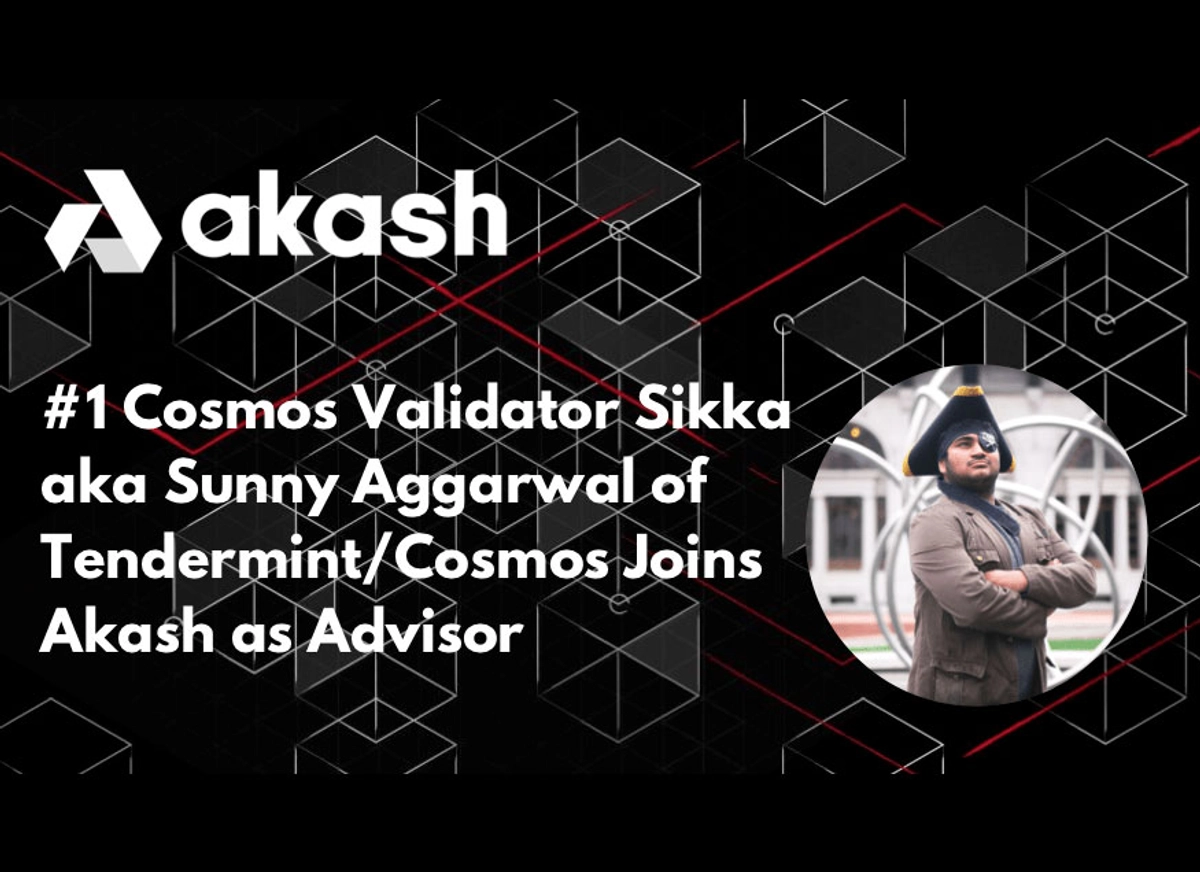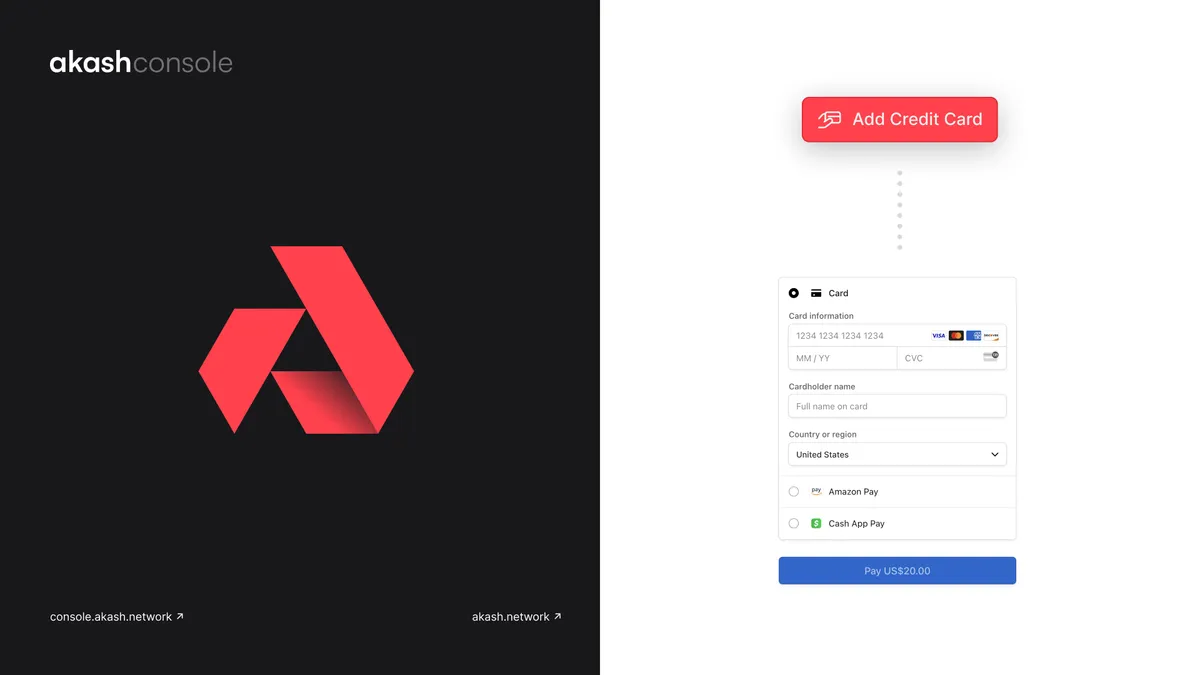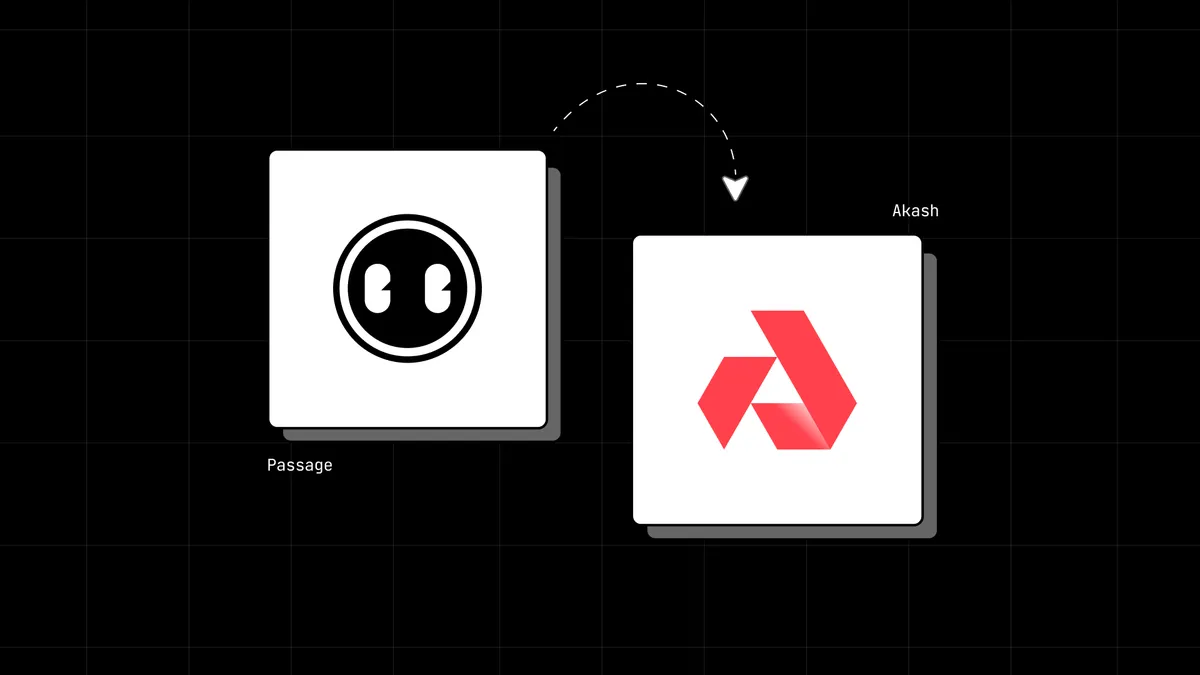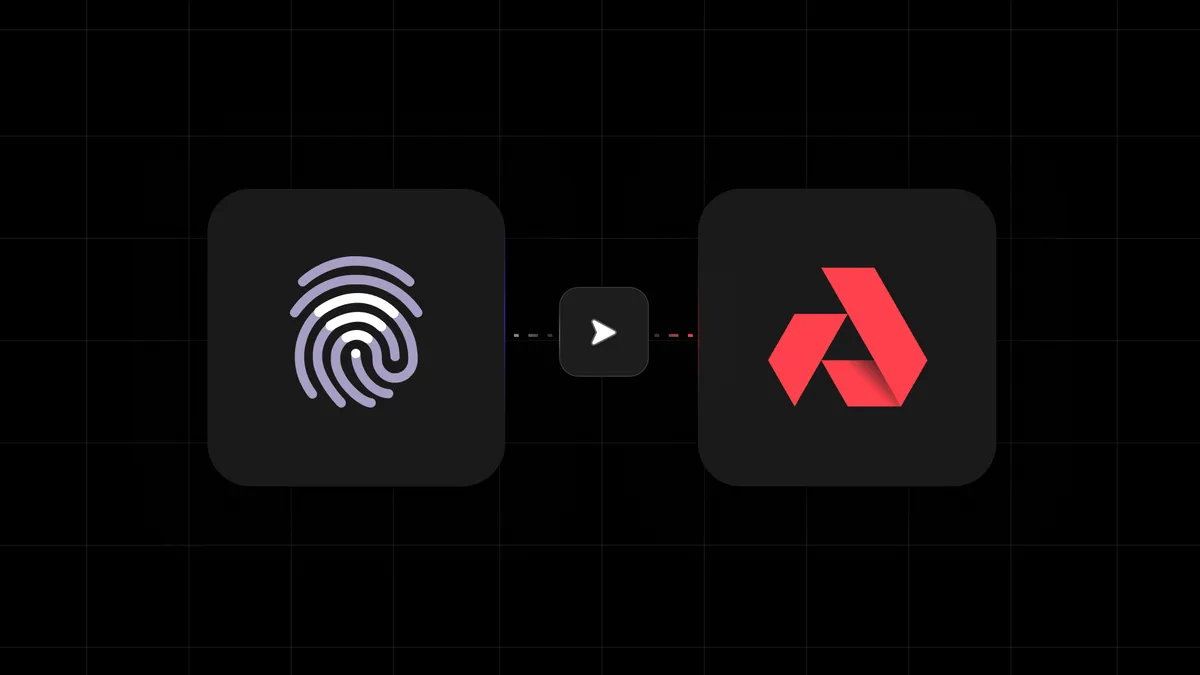
Last week, we announced that Jack Zampolin of Pylon Validation Services and Tendermint joined Akash as an Advisor, and today, we’re excited to announce that the number one Cosmos validator Sikka aka Sunny Aggarwal of Tendermint/Cosmos has joined Akash as an Advisor. Validators are essential to ensuring the sovereignty and security of Akash’s platform. In recognition of their importance in our ecosystem, we recently announced a grant of 20% delegation power for the first 10 genesis cohort of validators who commit to Akash Network.
Sunny’s deep commitment to community and to teaching, along with his role as Research Scientist at Tendermint/Cosmos, perfectly positions him as an invaluable advisor and guide as we scale the world’s first open, permissionless, and secure supercloud and marketplace for serverless computing.
Read on to learn more about Sunny’s remarkable trajectory from pirate ship to the Cosmos.
Q&A with Sunny
Is it a pirate’s life for you?
Haha, that profile picture is from back when I was a student at Berkeley, and was running for the student government. Heavily dissatisfied with the existing political parties in UC Berkeley student politics, a few friends and I created a new Pirate Party. While a bunch of the other candidates were taking it very seriously, we were just having fun with it. We had a pirate ship on the main plaza fountain, and we challenged people to sword fights while blasting the soundtrack to “Pirates of the Caribbean”. But we also had a serious message too, which people liked, and so come election day, we ended up winning a seat! In today’s political world, we’re in one of the most advanced memetic conflicts, and I think ideas win through not only their merit, but a combination of merit and memetic contagion–something I think segments of the crypto space have understood quite well.
How did you get into blockchain?
As a freshman at Berkeley in 2015, I was studying Computer Science and Political Economy, and got interested in Bitcoin as a way of exploring the intersection of the two. I’ve learned that when I want to learn something, I sign up to teach it. That way, I better learn it! At Berkeley, there’s this cool program called Decals, where students can teach courses. Two friends and I decided to create a course called the Cryptocurrency Fundamentals Decal, where we taught about the mechanics of blockchains. The same semester, we started the Blockchain at Berkeley organization, bootstrapping a lot of the initial members from the students in the Decal course. The summer after Sophomore year, I got really engrossed with Proof of Stake, which led me to learning about Tendermint. I reached out to them to help out, and come fall, I was so enthralled that I dropped out of school to work on Tendermint and Cosmos full time.
Why did you decide to become a Validator?
Watching the Bitcoin scaling debates a few years ago, I saw there was a definite split between the miners and core developers, and that was a large cleavage where the battle lines were drawn. I wanted to become a validator to be able to wear both hats, such that if conflicts arise, I can have an understanding and appreciation for the viewpoints of both sides. Having the mindset of a validator also helps me make better design and architectural decisions, as I am simultaneously a user of my software and systems.
How did you become the #1 Validator on Cosmos?
I think it is likely a combination of factors. Sikka is a community-oriented validator; we don’t take in delegation from large known funds for example, but rather from completely anonymous individuals throughout the community. Both myself and my partner, Dev Ojha (valardragon), have contributed heavily to the core software of Cosmos, such as Tendermint Core and the Cosmos SDK. We are able to use our specialized knowledge of the core software to provide insight and improve the security and service for our delegators.
For example, prior to the Kava re-launch, we were able to identify a misconfiguration of the genesis file, which would have gotten many validators slashed. We were able to sound the alarm bells in order to halt the launch and fix the issue, allowing launch to go forward smoothly. We also, going along with the community theme, initially charged a 0% commission for a few months after launch, which likely attracted a number of delegators. However, after feedback from the community through discussions and a governance proposal we created, we increased the commission rate, after which we still saw the vast majority of delegators stick with Sikka. We are currently working on a project called the SikkaDAO, in order to give more say on the validator to the Sikka delegators.
As Research Scientist at Tendermint, what projects coming into the Cosmos ecosystem are you excited about?
There are a bunch of projects building on Cosmos that I’m really excited about. I think there’s a bunch of cool DeFi primitives being built on Cosmos SDK chains right now, such as Kava’s multi-collateral CDP system, Microtick’s short-term options/price discovery platform, and Chorus One’s Quicksilver project. The Cosmos architecture has a very particular mindset when it comes to designing systems. I think maybe the best way to describe it is to take a “localist” view of interoperating entities. Cosmos chains normally provide their own security, and then users create interaction stories between chains that take into view each chain’s security, instead of the Cosmos Hub trying to provide a single global security set.
It’s interesting to see this system integrated with other mechanisms in Cosmos projects such as the Agoric smart contracting system and the Kira Dex design. Finally, while building defi and smart contracting is awesome, it’s also great to see more practical projects with real world use cases and users. For example, Lino and of course, the Akash Network. A lot of the open source tooling built by the Akash team is super awesome with immediate real-world usage in DevOps workflows, and it’s exciting to see it all come together in a fully decentralized cloud platform like the Akash Network.


